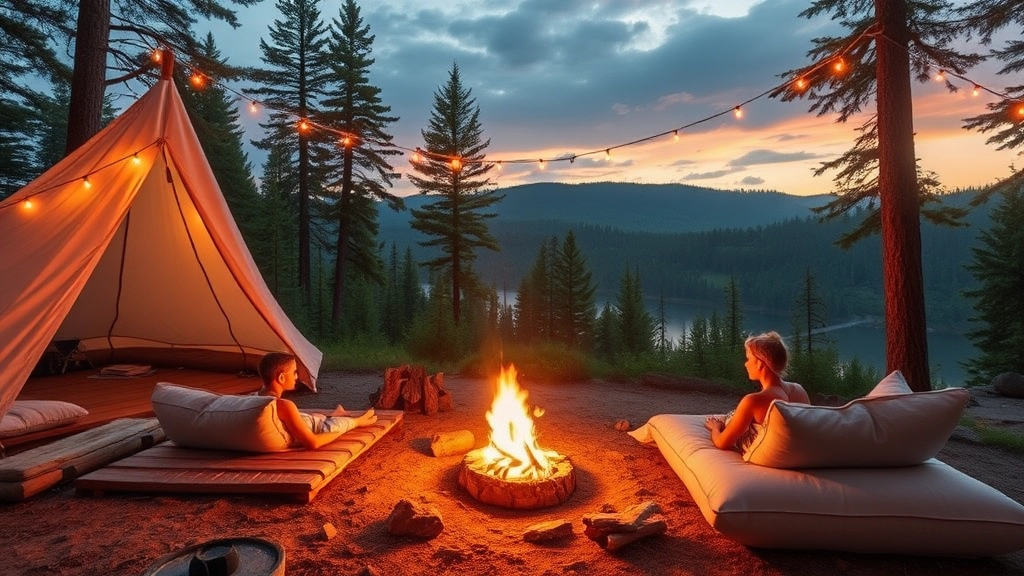Sending Your Child to Summer Camp
Sending your child to a summer camp sleepaway can be both an exciting and daunting experience for both parents and kids. This comprehensive guide aims to ease your worries and equip you with all the necessary information to make the best choice. From choosing the right camp and understanding its benefits to preparing your child and managing costs, we’ve got you covered.
What to Expect
We’ll delve into popular camp activities, packing essentials, and the safety measures camps implement to ensure your child’s well-being. You’ll also find helpful tips for first-time campers and ways to stay connected with your child during their adventure. Real-life testimonials and experiences from campers will give you a glimpse into the transformative power of sleepaway camps.
Ready to Embark on This Journey?
Let’s dive in!
Choosing the Right Sleepaway Camp
Alright, let’s face it. Picking the right sleepaway camp for your kid can feel like a Herculean task. You’re bombarded with brochures, websites, and advice from every parent you know. How do you cut through the noise and make a smart choice? Here’s a no-nonsense guide to help you out.
What Do You Want for Your Child?
First off, nail down what you want your child to get out of this experience. Are you aiming for them to develop new skills, make lifelong friends, or just get a break from screens? Knowing your goals will help you filter out the camps that aren’t a good fit.
Types of Camps
- Traditional Camps: These are your classic camps with a mix of activities like swimming, hiking, and arts and crafts.
- Specialty Camps: Focus on a specific skill or interest, like sports, music, or science.
- Adventure Camps: For the thrill-seekers, these camps offer activities like rock climbing, rafting, and survival skills.
- Academic Camps: Perfect for the brainiacs, these camps focus on subjects like coding, math, or language immersion.
Do Your Homework
Research is your best friend here. Check out online reviews, ask other parents, and visit the camps if possible. Look for camps accredited by organisations like the American Camp Association (ACA). Accreditation means they meet certain safety and quality standards.
Questions to Ask
When you’ve narrowed down your options, it’s time to dig deeper. Here are some questions to get you started:
- What’s the camp’s philosophy? Are they all about teamwork, individual growth, or just plain fun?
- What’s the camper-to-counsellor ratio? You want to make sure your child gets enough attention.
- What’s the daily schedule like? Make sure it aligns with what your child enjoys and needs.
- What are the safety protocols? This is non-negotiable. You need to know how they handle emergencies.
- What’s the food like? If your child has dietary restrictions, this is crucial.
Visit and Trust Your Gut
If you can, visit the camp. Seeing it in person can give you a feel for the environment and the people running it. Trust your gut. If something feels off, it probably is.
Real Talk: Stories from the Trenches
I remember when I sent my kid to a sleepaway camp for the first time. I was a nervous wreck, but after doing my homework and asking the right questions, I felt more at ease. My kid came back with stories of new friends, adventures, and a newfound sense of independence. It was worth every bit of effort.
For more tips on ensuring a safe and fun camp experience, check out our Summer Camp Cabin Bunk Safety and Design Tips. And if you’re still unsure about which camp to choose, our Parent’s Guide to Top Sleepaway Camps can help you make an informed decision.
Benefits of Attending a Sleepaway Camp
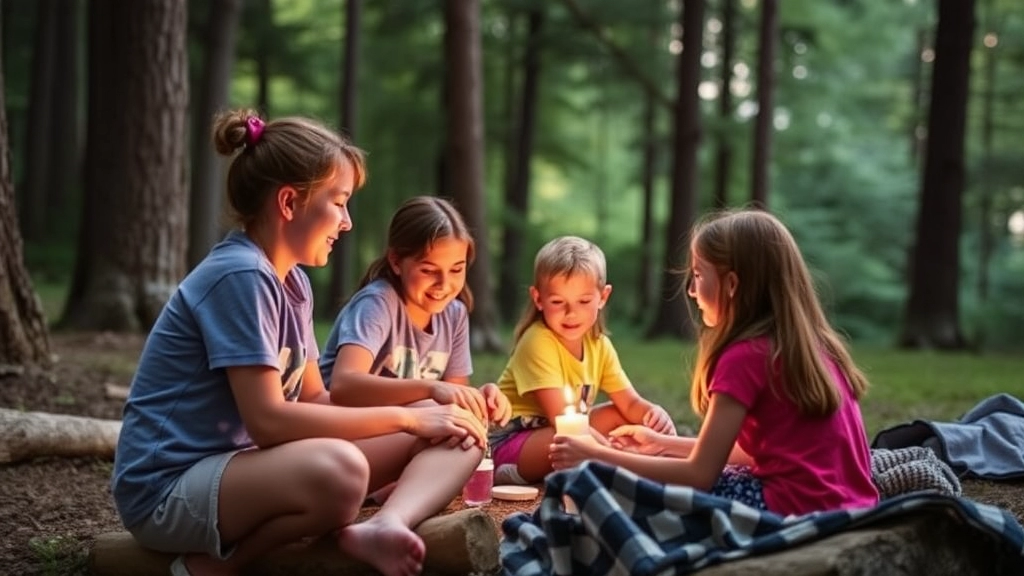
Ever wondered if sending your kid to a sleepaway camp is worth it?
Let’s break it down.
Boosts Independence
Kids learn to manage on their own.
They figure out daily routines without parents hovering.
It’s like a mini crash course in self-reliance.
Builds Social Skills
Meeting new people?
Check.
Making friends?
Double check.
Camp is a social playground where kids develop:
- Communication skills
- Teamwork
- Conflict resolution
Promotes Physical Activity
Forget video games.
At camp, it’s all about:
- Hiking
- Swimming
- Sports
Keeps them active and healthy.
Encourages New Interests
Ever seen a kid discover a passion for archery?
Or maybe arts and crafts?
Sleepaway camps offer a buffet of activities.
Kids can:
- Try new things
- Find hidden talents
- Develop hobbies
Fosters Confidence
Overcoming challenges?
Nailing that zip line?
These experiences build confidence.
Kids come back feeling like they can conquer the world.
Enhances Emotional Growth
Being away from home can be tough.
But it teaches resilience.
Kids learn to:
- Handle homesickness
- Manage emotions
- Be more adaptable
Unplug from Tech
No screens.
Just nature and real-life interactions.
It’s a digital detox that every kid needs.
Real Stories, Real Impact
Take Jamie, for example.
He was shy and reserved.
A summer at camp?
Now he’s the life of the party.
Or Emma, who discovered her love for theatre at camp.
Now she’s in her school’s drama club.
Popular Sleepaway Camp Activities
Ever wondered what makes sleepaway camps so thrilling for kids? It’s all about the activities! Let’s dive into some of the most popular sleepaway camp activities that keep kids buzzing with excitement and coming back year after year.
Classic Camp Activities
First up, let’s talk about the classics. These are the activities that have stood the test of time and are beloved by campers of all ages.
- Swimming and Water Sports: Think canoeing, kayaking, paddleboarding, and swimming in the lake. Water activities are a staple at most sleepaway camps.
- Hiking and Nature Walks: Exploring the great outdoors, learning about local flora and fauna, and maybe even spotting some wildlife.
- Arts and Crafts: From friendship bracelets to painting, arts and crafts allow kids to unleash their creativity.
- Campfires and Storytelling: Nothing beats gathering around a campfire, roasting marshmallows, and sharing ghost stories.
Adventure Activities
For the thrill-seekers, many camps offer adventure activities that get the adrenaline pumping.
- Rock Climbing and Rappelling: Camps often have climbing walls or natural rock formations for kids to conquer.
- Zip Lining: Flying through the trees on a zip line is an unforgettable experience.
- Obstacle Courses: These can range from simple challenges to full-on ninja warrior-style courses.
Team Sports and Games
Team sports are a fantastic way for kids to build camaraderie and learn the value of teamwork.
- Football, Basketball, and Soccer: Traditional sports are always a hit.
- Capture the Flag: A camp favourite that gets everyone involved and strategizing.
- Tug of War: Simple but incredibly fun and competitive.
Skill-Building Activities
Camps also offer activities that teach valuable skills and can even spark new interests.
- Archery: Perfect for developing focus and precision.
- Cooking Classes: Learning to cook over an open fire or in a camp kitchen.
- Survival Skills: Think building shelters, starting fires, and navigating with a compass.
Performing Arts
For the budding performers, many camps offer opportunities to shine on stage.
- Talent Shows: A chance for kids to showcase their unique skills.
- Drama and Theatre: Putting on plays or skits.
- Music and Dance: From learning instruments to choreographed dance routines.
Special Themed Activities
Some camps go above and beyond with themed activities that make the experience even more memorable.
- Treasure Hunts: Often with elaborate clues and maps.
- Carnival Days: Complete with games, prizes, and sometimes even rides.
- Holiday Celebrations: Celebrating Christmas in July or Halloween in the summer.
Real Stories from Campers
One camper, Jack, shared how rock climbing at camp helped him overcome his fear of heights. “I was terrified at first, but the instructors were amazing. By the end of the week, I felt like I could conquer anything!”
Another camper, Lily, loved the arts and crafts sessions. “I made so many cool things and even brought home a scrapbook full of memories.”
Preparing Your Child for Sleepaway Camp
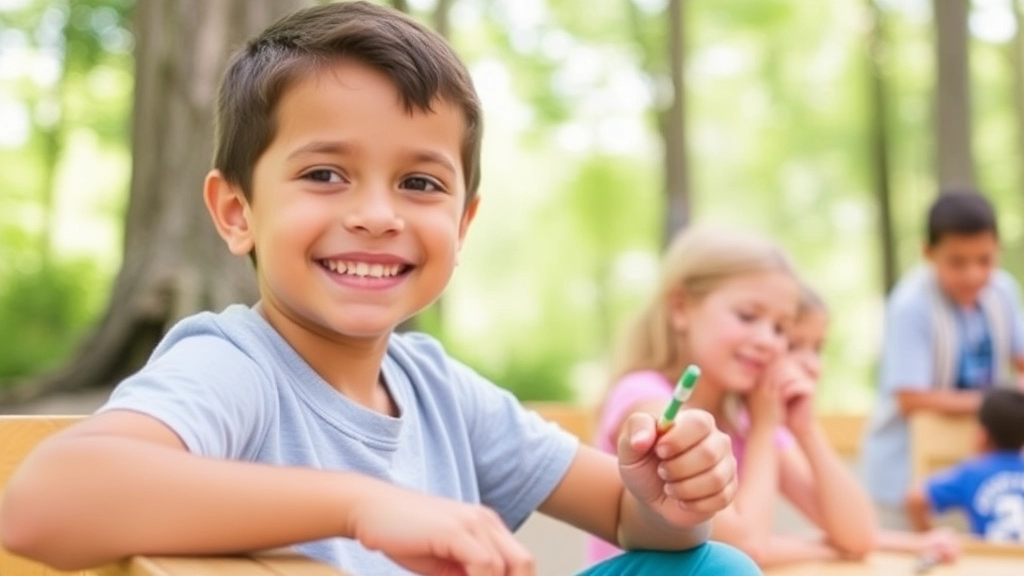
Worried about sending your child to sleepaway camp?
I get it. It’s a big step.
But don’t sweat it. I’ve got you covered.
Here’s how to make the transition smooth and stress-free.
Start with a Chat
Sit down with your child.
Ask them how they feel about camp.
Listen to their fears and excitement.
Address their concerns head-on.
Visit the Camp
If possible, take a trip to the camp beforehand.
Let your child see where they’ll sleep, eat, and play.
It makes the unknown less scary.
Pack Together
Get your child involved in packing.
Make a checklist:
- Clothes for different weather
- Toiletries they’ll need
- Comfort items like a favourite stuffed animal
Packing together gives them a sense of control.
Practice Sleepovers
If your child hasn’t spent nights away from home, arrange a few sleepovers with friends or family.
It’s a mini-step towards independence.
Teach Basic Skills
Make sure they know the basics:
- Tying shoelaces
- Brushing teeth
- Making their bed
These small skills build confidence.
Discuss Camp Rules
Go over the camp’s rules and expectations.
Explain why these rules exist – for safety and fun.
Encourage Independence
Let them handle small tasks on their own at home.
It’s all about building self-reliance.
Stay Positive
Your attitude matters.
Be enthusiastic and positive about the camp experience.
Share Stories
Tell them about your own camp experiences or share stories from other kids.
Real-life examples make it relatable.
Address Homesickness
It’s normal to miss home.
Reassure them it’s okay to feel this way.
Keep in Touch
Plan how you’ll stay connected.
Letters, emails, or scheduled calls – whatever the camp allows.
Final Words of Encouragement
Remind them why they’re going:
- To make new friends
- To learn new skills
- To have fun
They’ve got this.
And so do you.
Preparing your child for sleepaway camp isn’t rocket science.
It’s about communication, preparation, and a positive mindset.
Ready to send them off?
They’ll come back with stories and experiences they’ll cherish forever.
Packing Essentials for Sleepaway Camp
Alright, let’s talk about packing for sleepaway camp. I know what you’re thinking: “What does my kid really need?” Trust me, I’ve been there. You want to make sure they have everything to be comfortable and safe, but you also don’t want them lugging around a suitcase the size of a small car. So, let’s break it down.
The Basics: What Every Camper Needs
First things first, clothing. Pack enough to last the entire camp session, plus a few extras for those inevitable messy days. Here’s a quick list:
- T-shirts and shorts: Comfortable and breathable.
- Long-sleeve shirts and trousers: For cooler evenings or hikes.
- Swimwear: At least two sets.
- Pyjamas: One for every two nights.
- Underwear and socks: One per day, plus a few extras.
- Rain jacket: Because you never know.
Next up, footwear:
- Trainers: For everyday activities.
- Water shoes: For lake or river activities.
- Flip-flops: For the shower.
Toiletries: Keep It Simple
You don’t need to pack the entire bathroom cabinet. Stick to the essentials:
- Toothbrush and toothpaste
- Shampoo and conditioner (travel-sized)
- Body wash or soap
- Deodorant
- Hairbrush or comb
- Sunscreen and insect repellent: These are non-negotiable.
Bedding and Comfort Items
Most camps provide basic bedding, but it’s always a good idea to check beforehand. If not, you’ll need:
- Sleeping bag: Lightweight and easy to pack.
- Pillow: A touch of home comfort.
- Blanket: For extra warmth.
Gear and Gadgets
Let’s keep this section light but functional:
- Torch: For those late-night bathroom trips.
- Water bottle: Hydration is key.
- Backpack: For day trips and hikes.
- Notebook and pen: For jotting down memories or writing letters home.
Personal Touches
A few personal items can make all the difference:
- Family photo: A little piece of home.
- Favourite book or magazine: For downtime.
- Small games or cards: To share with new friends.
Health and Safety
Don’t forget these crucial items:
- Medications: Clearly labelled with instructions.
- First-aid kit: Basic supplies like plasters and antiseptic wipes.
- Health insurance card: Just in case.
Packing Tips for Parents
Now, let’s get into some practical advice:
- Label Everything: Use a permanent marker or name tags. Trust me, it’s a lifesaver.
- Pack Smart: Roll clothes to save space and avoid wrinkles.
- Involve Your Child: Let them help pack so they know where everything is.
Real Talk: Stories from the Campfire
I remember my first camp experience. My mum packed everything but the kitchen sink, and I ended up only using half of it. The key is balance. You want your child to be prepared but also independent. One camper told me how having a small photo album helped them feel connected to home, while another swore by packing extra socks because, let’s face it, they always go missing.
Safety and Supervision at Sleepaway Camps
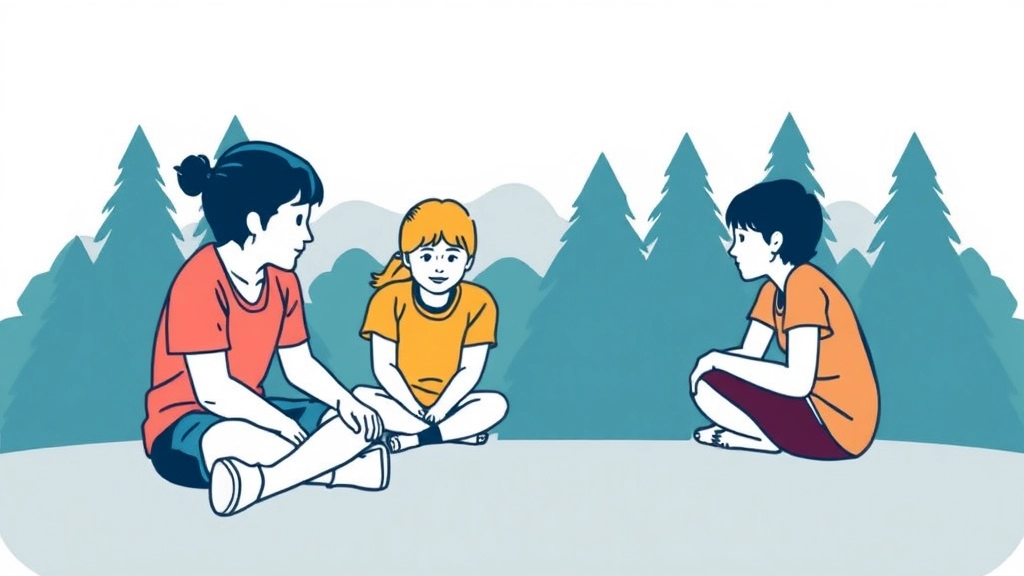
Worried about your child’s safety at sleepaway camp?
You’re not alone.
Every parent wants peace of mind, knowing their kid is in good hands.
So, let’s dive into how sleepaway camps keep your child safe and supervised.
Staff Training and Background Checks
First off, camps don’t just hire anyone.
Staff go through extensive training and background checks.
They learn:
- First aid and CPR
- Conflict resolution
- Emergency procedures
This isn’t just a summer gig for them; it’s a serious responsibility.
Camper-to-Counsellor Ratios
Ever wondered how many kids one counsellor manages?
Most camps stick to low camper-to-counsellor ratios.
This means your child gets more attention and supervision.
Think about it: fewer kids per adult means quicker responses if something goes wrong.
Health and Medical Care
What if your child gets sick or injured?
Camps usually have on-site medical staff.
Nurses, sometimes even doctors, are available 24/7.
Plus, they have protocols for everything from minor scrapes to more serious issues.
Security Measures
How do camps keep outsiders out?
Many camps are in remote locations with limited access.
They also have security protocols like:
- Gated entrances
- Visitor logs
- Security personnel
It’s like a mini fortress, but with more fun.
Regular Check-Ins
Communication is key.
Camps often have daily check-ins with your child.
Counsellors make sure everyone is accounted for and doing okay.
These check-ins are a great way to catch any issues early.
Real-Life Example
I remember one camp where a kid got homesick.
The counsellors noticed it during a daily check-in.
They took extra steps to make the child feel included and comfortable.
By the end of the week, that kid didn’t want to leave.
What You Can Do
Want to feel even more secure?
- Visit the camp beforehand.
- Meet the staff and ask questions.
- Read reviews from other parents.
Knowledge is power, and it can ease your worries.
Safety and supervision at sleepaway camps are top priorities.
With trained staff, low camper-to-counsellor ratios, and solid security measures, your child is in good hands.
So, relax a bit.
Your kid’s about to have an amazing, safe adventure.
Ready to dive into more about sleepaway camps?
Check out our section on Choosing the Right Sleepaway Camp.
Cost Considerations and Budgeting
Worried about the cost of sleepaway camp? You’re not alone. Many parents grapple with the financial aspect of sending their kids to camp. Let’s break it down and make it easy to understand. Here’s what you need to think about when budgeting for sleepaway camp.
Understanding the Costs
First things first, what does a sleepaway camp actually cost? Prices can vary widely based on several factors:
- Location: Camps in popular or remote destinations might cost more.
- Duration: A two-week camp will be cheaper than a full summer stint.
- Activities: Specialised camps offering activities like horse riding or tech workshops often have higher fees.
- Facilities: Camps with modern amenities and comfortable lodgings can charge a premium.
So, how do you figure out what fits your budget? Start by listing your priorities. Do you want a camp that offers a wide range of activities, or is a specific focus more important? Knowing what you value can help you decide where to spend and where to save.
Hidden Costs to Watch For
Beyond the basic camp fees, there are often hidden costs that can catch you off guard. Here are a few to keep in mind:
- Travel Expenses: Getting to and from camp can add up, especially if it’s far away.
- Gear and Supplies: From sleeping bags to sports equipment, these can be a significant expense.
- Special Activities: Some camps charge extra for certain activities or field trips.
- Health and Safety: Check if medical expenses or insurance are covered in the fee.
Budgeting Tips
Now, let’s talk about some practical tips to manage these costs:
- Early Bird Discounts: Many camps offer discounts if you book early. Keep an eye out for these deals.
- Payment Plans: Some camps allow you to pay in instalments, which can make the cost more manageable.
- Scholarships and Financial Aid: Don’t overlook this. Many camps offer financial assistance. It never hurts to ask.
- Group Discounts: If you’re sending multiple kids or organising a group, you might score a discount.
Real Stories
Take my friend Sarah, for example. She was determined to send her daughter to a top-notch science camp but was worried about the price. She called the camp and discovered they offered a scholarship for kids interested in STEM. Sarah applied, got the scholarship, and her daughter had an unforgettable summer without breaking the bank.
Making the Final Decision
Once you’ve crunched the numbers, it’s time to make a decision. Remember, the goal is to find a camp that fits your budget while offering a valuable experience for your child. It’s all about balance. For more insights on managing your camp budget, check out our guide on average summer camp costs and budget tips.
Testimonials and Experiences from Campers
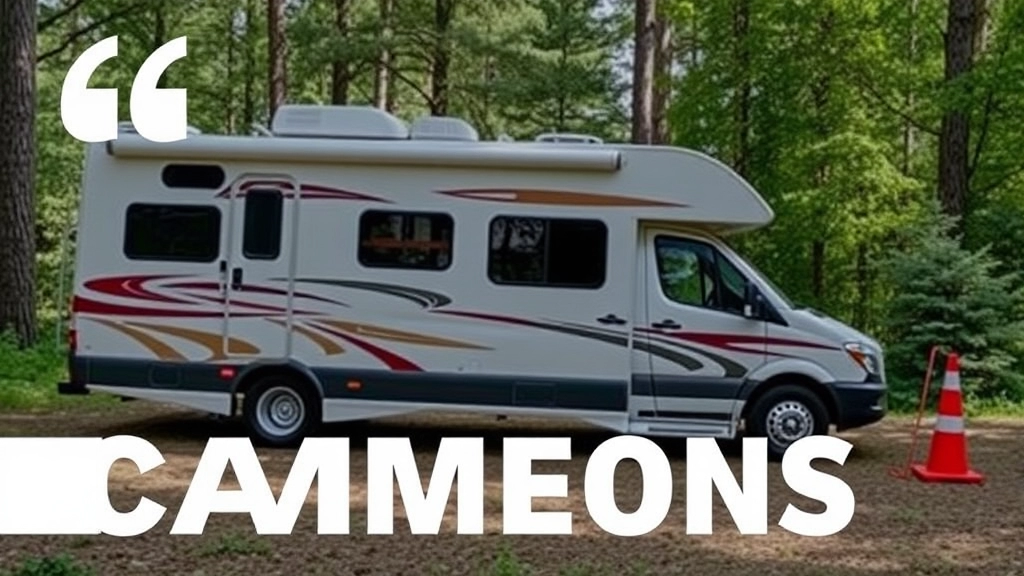
Ever wondered what your child might experience at a sleepaway camp?
Let’s dive into some real stories from campers themselves.
“Will I make friends?”
That’s a big one.
Most kids worry about this.
But guess what?
Nearly every camper I’ve spoken to says they made friends for life.
“I was so nervous about not knowing anyone,” says Sarah, 12. “But within a day, I had a whole group of friends. We did everything together!”
“What if I feel homesick?”
Totally normal.
Homesickness happens.
But camps have strategies to help.
“I missed home a lot the first night,” admits Tom, 10. “But the counsellors were super supportive. By the second day, I was having too much fun to think about it.”
“Will the activities be fun?”
Short answer: Yes.
Long answer: Absolutely.
From archery to arts and crafts, the variety is endless.
“I never thought I’d enjoy canoeing,” says Emma, 13. “But it turned out to be my favourite activity. I even won a race!”
“What about the food?”
Camp food has a bad rep.
But most places have stepped up their game.
“I was surprised at how good the food was,” shares Jake, 11. “We even had a pizza night!”
“Will I be safe?”
Safety is a top priority.
Camps have strict protocols and trained staff.
“I felt really safe the whole time,” notes Lily, 14. “There were always adults around, and they were really attentive.”
“Is it worth the money?”
For many, yes.
The experience can be priceless.
“It was worth every penny,” says Matt, 15. “The memories and friends I made are something I’ll cherish forever.”
Why Testimonials Matter
- Real Experiences: They give you a genuine look into camp life.
- Reassurance: They ease common worries and fears.
- Decision-Making: They help you choose the right camp for your child.
Final Thoughts
Hearing from those who’ve been there can make all the difference.
So, if you’re on the fence, take these testimonials to heart.
Your child might just have the time of their life.
For more insights, check out our sections on Choosing the Right Sleepaway Camp and Tips for First-Time Campers.
Tips for First-Time Campers
Worried about your kid’s first time at sleepaway camp? You’re not alone. It’s a big step, and it’s natural to have questions and concerns. Let’s break it down and make sure your child has a blast.
1. Embrace the Nerves
First off, it’s okay to be nervous. Everyone feels itâboth kids and parents. Talk to your child about their feelings. Keep it real and share your own camp stories if you have any. It helps them know they’re not alone.
2. Pack Smart, Not Heavy
Packing can be a headache, but it doesn’t have to be. Here’s a quick list to make it easier:
- Essentials: Clothes, toiletries, and a good pair of shoes.
- Comfort Items: A favourite stuffed animal or blanket.
- Extras: Flashlight, water bottle, and a journal.
Keep it simple and focus on what they’ll actually use. Overpacking can stress them out. For a detailed list, check out our Summer Camp Packing Checklist.
3. Stay Connected, But Not Too Much
It’s tempting to call every day, but part of camp is learning independence. Set up a schedule for calls or letters. Trust the process and give them space to grow.
4. Make Friends Fast
Encourage your child to introduce themselves to new people. Camp is all about making friends and trying new things. A simple “Hi, I’m [Name]” can go a long way.
5. Dive Into Activities
The best way to beat homesickness? Stay busy. Camps offer a ton of activitiesâfrom sports to arts and crafts. Encourage your child to try everything. The more engaged they are, the less they’ll miss home. For some fun ideas, explore our Top 10 Exciting Summer Camp Activities.
6. Prepare for Homesickness
Homesickness is normal. Talk about it before they leave. Let them know it’s okay to miss home but remind them that camp is temporary and full of fun.
7. Follow Camp Rules
Rules might seem like a drag, but they’re there for a reason. Explain the importance of following camp guidelines for safety and fun. Respect the rules, enjoy the camp.
8. Practice Self-Care
Teach your child some basic self-care tips:
- Stay Hydrated: Drink water regularly.
- Sleep Well: Follow the camp’s bedtime schedule.
- Eat Right: Enjoy the meals provided, even if they’re different from home.
9. Be Open to New Experiences
Camp is a place to try new things. Whether it’s a new sport or a campfire song, encourage your child to step out of their comfort zone.
10. Reflect and Share
After camp, take time to talk about their experiences. What did they love? What was challenging? This helps them process and appreciate their time away.
Real Talk
When my kid went to camp for the first time, we were both nervous wrecks. But guess what? They came back with stories of new friends, crazy adventures, and a newfound confidence. Trust the journeyâcamp can be a life-changing experience.
How to Stay Connected with Your Child at Camp
Worried about staying connected with your child at sleepaway camp?
You’re not alone.
It’s a common concern for many parents.
But don’t stress.
I’ve got some practical tips to help you feel closer, even when you’re apart.
Send Letters and Emails
Old-school, but it works.
- Letters: Kids love getting mail. Write them often.
- Emails: Some camps offer email services. Quick and easy.
Scheduled Phone Calls
If the camp allows it, set up specific times for calls.
- Consistency: Helps both you and your child look forward to it.
- Boundaries: Keep it short to avoid homesickness.
Care Packages
A little surprise goes a long way.
- Snacks: Their favourites.
- Photos: A reminder of home.
- Small Gifts: Something special.
Camp Newsletters and Updates
Stay informed.
- Newsletters: Many camps send regular updates.
- Social Media: Follow the camp’s page for photos and news.
Trust the Process
Remember, camp is about growth.
- Independence: Your child is learning valuable skills.
- Confidence: They’re building resilience.
Real Talk
I remember sending my kid off for the first time.
The silence at home was deafening.
But each letter I received was filled with stories of new friends and adventures.
It’s all part of the journey.
So, take a deep breath.
Stay connected, but let them explore.
Your child will return with tales and experiences that are worth every moment apart.
For more tips on making the most of summer camp, check out our guide on Top Sleepaway Camps: A Parent’s Guide and explore some Top Summer Camp Games and Activities to keep your child engaged.
FAQs About Summer Camp Sleepaway
What are the benefits of sending my child to a sleepaway camp?
Sleepaway camps offer numerous benefits, including boosting independence, building social skills, promoting physical activity, encouraging new interests, fostering confidence, enhancing emotional growth, and providing a tech-free environment.
How can I prepare my child for sleepaway camp?
Preparation tips include having a chat with your child, visiting the camp beforehand, packing together, practicing sleepovers, teaching basic skills, discussing camp rules, encouraging independence, staying positive, sharing stories, addressing homesickness, and planning how to stay in touch.
What safety measures are in place at sleepaway camps?
Safety measures at sleepaway camps include staff training and background checks, low camper-to-counsellor ratios, on-site medical staff, security protocols, and regular check-ins with campers.
How do camps ensure my child is supervised properly?
Most camps maintain low camper-to-counsellor ratios, ensuring each child receives adequate attention and supervision. Staff are trained in first aid, CPR, conflict resolution, and emergency procedures.
What should my child pack for sleepaway camp?
Items to pack include clothes for different weather, toiletries, and comfort items like a favorite stuffed animal. Involving your child in the packing process can help them feel more prepared and in control.
How do camps handle homesickness?
Camps have strategies to manage homesickness, such as supportive counsellors and engaging activities. It’s also helpful to reassure your child that it’s normal to miss home and that they can talk to staff if they feel homesick.
Will my child make friends at camp?
Yes, most children make friends quickly at camp. The environment is designed to encourage social interaction and teamwork, helping kids form lasting friendships.
What types of activities can my child expect at camp?
Activities vary by camp but often include hiking, swimming, sports, archery, arts and crafts, and other outdoor adventures. These activities help children discover new interests and develop hobbies.
Is the food at sleepaway camps good?
Many camps have improved their food offerings, providing nutritious and tasty meals. Some camps even have themed food nights like pizza night to keep meals exciting.
How can I stay in touch with my child during camp?
Most camps allow letters, emails, or scheduled calls. It’s important to plan how you’ll stay connected before your child leaves for camp.
Are sleepaway camps worth the cost?
Many parents and campers believe that the experiences, skills, and friendships gained at sleepaway camp are worth the investment. Testimonials from former campers often highlight the lifelong memories and personal growth achieved.
Where can I find more information on choosing the right sleepaway camp?
For more insights, check out our sections on Choosing the Right Sleepaway Camp and Tips for First-Time Campers.
References
-
Preparing Your Child for Summer Camp
-
The Benefits of Summer Camp for Kids
-
Summer Camp Safety: What Parents Need to Know

